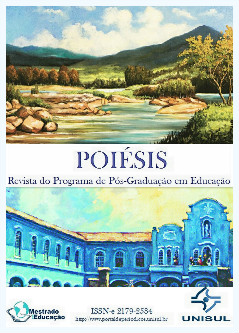METHODOLOGY FOR THE PREPARATION OF CURRICULAR MATRIX: INTEGRATION AND TRANSVERSALITY
DOI:
https://doi.org/10.19177/prppge.v10e0201627-45Keywords:
Curricular matrix of reference, professional training, integration, transversality.Abstract
In the work’s world, the professional training has been a constant challenge increasingly involved with technical and scientific advances, especially the information and communication systems. The paper presents results of a research carried out through the application of a methodology for preparing a Curricular Matrix of Reference. The aim was to study 53 Courses of High School Technical-Professional Education of the Open and Technical School system of Brazil. The objective was to validate a methodology for an integrated and cross-curricular organization. The investigation method was the action-research, observing the theoretical-methodological principles of the collective construction process to the Problem-solving. The the group of Scientific Research in Distance Education (PCEADIS/CNPq) conducted investigation, and it was developed by a research network that brought together 76 researchers from 2009 to 2014. The instruments used were an online registration protocol and a matrix composed by four basic categories: the graduates’ profile, skills, technological bases and curricular components. The theory behind the proposal is the integrated and cross-curricular organization. The results were elaborated, approved and published in 53 curricular matrices that serve as references for the provision of courses of Technological-Professional Education, the projects upgrade or the creation of new ones. The results show the effectiveness of an integrated and cross-curricular organization. Another development of the research is going to be finalized by the same network, organized into eight groups of researchers that propose to investigate, monitor and evaluate the implications of this paper and the Network e-Tec Brazil. The FNDE/MEC funds the present investigation project.
Downloads
Published
Issue
Section
License

Poiésis is licensed under a Creative Commons Atribuição-Uso Não-Comercial-Não a obras derivadas 3.0 Unported License.


